Editorial
Fashola and hike of electricity tariff
Published
10 years agoon
By
Olu Emmanuel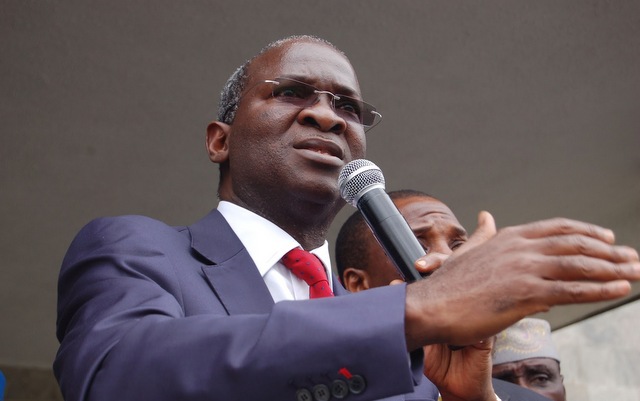
LATE last year, 2015, the Nigeria Electricity Regulatory Commission (NERC) announced that consumers are to pay more to enjoy electricity in their homes and industrial complexes beginning from February 1, 2016. The commission stated that electricity tariff was to increase by 45 percent.
However, many of the stakeholders in the sector, including the Nigeria Labour Congress (NLC) and the Trade Union Congress (TUC) may have considered the proposed increase as being rather ambitious. This was more so because the House of Representatives soon after the announcement, directed that the electricity regulator must put the plan on hold.
But, the NLC and TUC, representing the organized Labour, warned of the consequences of the plan and asked NERC to shelve its action. And there were hopes that a moratorium would be observed, giving the common man desired relief from debilitating economic woes.
Against popular expectations, NERC went ahead with the plan and electricity distribution companies instantly adjusted tariff for services on the ground that generating firms have jerked up price for the product that they supply.
That the tariff increase has drawn the wrath of organized Labour, civil society groups and other stakeholders is therefore not entirely a surprise to keen watchers of development in the sector before matters came to a head.
Under the new power tariff regime, electricity consumers in R2 class, said to be under residential, will pay N24.30 per kilowatt in Abuja; Benin – N24.08; Enugu – N27.13; Ibadan – N23.09; Jos – N26.93; Kaduna N27.36 and N28.05 (in single phase and three phases); Kano N20.26 and N26.41; Ikeja N21.30 and N21.80; Port Harcourt N24.91; Eko- N24.00 and 25.79; Yola N23.25 and N24.75 per kilowatt.
ALSO SEE: Fashola chairs power stakeholders’ meeting, as discos commit to more aggressive metering
Residential customers, meanwhile under R2 class within Abuja Electricity Distribution Company, will no longer pay N702.00 fixed charge every month; instead, their charge will increase by N9.60kwh. The residential customers in R2 category within Eko and Ikeja Electricity Distribution zones will no longer pay N750. 00 fixed charges. They will pay N10kwh and N8kwh increase in their energy charges.
The burden of N800.00 and N750.00 fixed charges will be removed from Kaduna and Benin electricity consumers, while they will get an increase of N11.05kwh and N9.26kwh in their energy charges. The commercial consumers in C2 category in Ibadan and Enugu will no longer pay fixed charges of N17, 010. 00 and N22,141. 00; instead their energy charge will increase by N12.08kwh and N13.35kwh. The Minister of Power, Babatunde Fashola, explained that the increase in tariff will boost investment in the sector.
The Nigerian Labour Congress (NLC) on Monday, February 8 called out workers for a nationwide protest against the federal government’s increase of electricity tariff leading to shut down of most state capitals, including Abuja, the Federal Capital.
NLC President, Comrade Ayuba Wabba in explanation stated that the: “Protest has become necessary after all effort to make NERC shelve the idea of increase failed. Indeed, rather than see reason with Nigerians, the Minister of Power, Works and Housing has been advancing spurious argument in justification.“The reasons for this protest are obvious and include the following: the due process in the extant laws for such increment was not followed in consonance with section 76 of the Power Sector Reform Act, 2005; “There has been no significant improvement in service delivery. Moreover, the fact is that most consumers are not metered in accordance with the signed privatisation Memorandum of Understanding (MOU) of November 1, 2013, which stipulates that within 18 months gestation period, all consumers are to be metered;
“There is a subsisting court order dated May 28, 2015, by Justice Mohammed Idris of the Federal High Court in Lagos, in the case of Toluwani Yemi-Adebiyi versus NERC and orders, that there shall be no further increment until the determination of the substantive suit.” He stated: “The increment at this time negates the present biting and prevailing economic recession vis-a-vis an attempt to further impoverish the poor masses.
ALSO SEE: Fashola dares Nigerians by his dictatorial voice — TUC
“We stakeholders, on increment in electricity tariff (a broad coalition) met in Lagos on January 28, 2016 and issued a communiqué demanding an “immediate halt of this morbid and exploitative intention” failure of which would lead to: mobilisation of all Nigerians to resist the new tariff; mass protests/picketing of all Discos’ offices across the country; directing all consumers to reject any bill with the new tariff and other actions necessary”.
It is obvious that the intervention of the Minister of Power, Babatunde Fashola (SAN) in the ensuing conflict has not helped in dousing tensions. Instead, emotions have been stretched by the former Lagos State Governor’s irreverent comments. Perhaps, it is the catalyst for exercerbating a conflict clearly avoidable.
His words: “I understand that people who have been disappointed over a long time will feel a sense of concern that again tariffs have gone up. But the truth is that these tariffs ought to have been there from day one. I don’t know why the government of yesterday was not courageous enough to tell us this was the price. “It is a painful pill that I must appeal that we swallow. It is like quinine and malaria. It’s painful; it’s not sweet, I know that, but I do it because we are not left with many choices. This is the first major decision in power that this administration has taken. There are other problems. “I can only appeal for some understanding and some trust that we do this in the best interest of our country. It is a hard decision, but I think down the line, we will have cause to look”. The minister, who faulted the way the privatisation of the power sector carried out by the immediate past administration of Goodluck Jonathan, said the sector was being plagued by several problems including gas supply shortfall and transmission issue.
He added: “The problem is everywhere. The problem is with us. The problem is with gas. The problem is with transmission. The problem is with the way the privatisation exercise itself was conducted. “But as I have said before, I am not going to lament what has happened in the past. I am going forward. So, the first move we have made when we accessed the situation, nobody was happy with it when we took over. This is a problem that has been here for 16 years, if we put it mildly. It is a problem that has been here 100 years ago, if we put it really extremely. “I have been here for less than a 100 days, and I think we can solve this problem if you give us the tools that we need to do it. I think that this problem can be solved, and the day that we feel that it cannot be solved, I will gladly come and tell you that I don’t think it will work,” he stated.
Fashola’s response invokes a peculiar style for which he was reputed while holding sway as helmsman in charge of Lagos State. It reveals an elitist debonair public officer desperate to protect the interests of a ruling class avowed to keeping the majority in the vicious circle of poverty. For the eight years or two terms that Fashola was Governor, there were no pro-poor policies enunciated by his government. He built the most expensive roads per kilometre in the country targeting the rich, he imposed toll gates that were not pocket friendly, built estates that middle income earners could not afford and established Independent Power Projects (IPP) that were not connected to areas where the wretched of the state could be found. His policies were undoubtedly self serving and in the interest of a minority ruling class.
But National Daily believes that the learned senior advocate must wake up from the reverie and outdated modus operandi of a conquering aficionado that he wants Nigerians to see him as. It is about time that he realises that he was appointed to that high office of Minister for the public good. This because to act otherwise would jeopardise any hope of being positively remembered by history long after he has left office.
ALSO SEE: Blame delay on FG road projects on paucity of funds – Fashola
The impression that has been created is that he has taken sides with investors in the power sector against majority of Nigerians that are directly affected by this vexatious and oppressive tariff regime rolled out by NERC. It is made even worse that there are no deliverables which the organised Labour can point to as dividend of this obnoxious policy other than the profit motive.
For the avoidance of doubt, Nigerians expect the following: 1. Significant generation of power (at least 10,000 MW). 2. Effective transmission and distribution of power. 3. Stable and efficient power supply. 4. Provision of pre-paid metres in consonance with the Creditted Advance Pay Metering Implementation (CAPMI) agreement. 5. Abolition of arbitrary, inflated and estimated billing system. 6. Negotiated tariff for electricity involving all stakeholders.
To contemplate anything to the contrary is a sure panacea for disaster. And it will be regrettable if Fashola epitomises the vehicle inflicted on the people to cause them untold pain. Once this is done, the euphoria that heralded his appointment would become a fleeting effervescence without substance. Definitely, the Honourable Minister did not set out to be stoned. It’s not too late to retrace his steps and make amends.
You may like
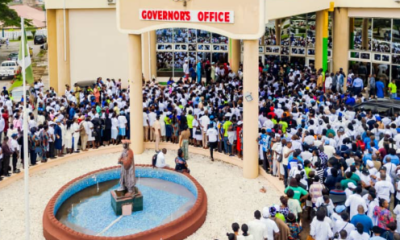

Ekiti health workers laud Governor Oyebanji’s “Golden era” in healthcare, Endorse re-election bid
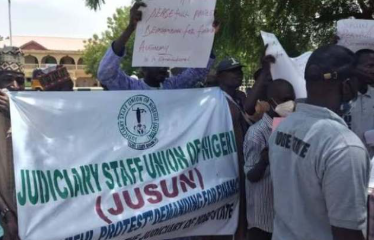

Judicial workers suspend strike, set to resume work Wednesday
FCSP condemns call for dissolution of NUP exco
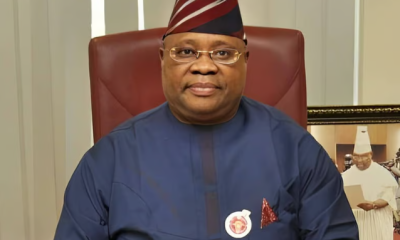

Osun workers pledge support for Gov. Adeleke’s 2026 Re-election
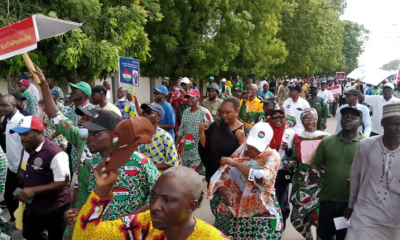

Partial compliance in Kano as labour strike begins
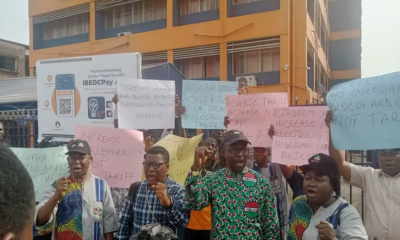

Oyo: Organized labour occupy IBEDC, protest over hike in electricity tariff
Trending

 Entertainment6 days ago
Entertainment6 days agoSimi addresses resurfaced 2012 tweets amid online backlash

 Health1 week ago
Health1 week agoSCFN, LUTH introduce bone marrow transplants as curative treatment for sickle cell

 Health4 days ago
Health4 days agoDeclassified CIA memo explored concealing mind-control drugs in vaccines

 Football1 week ago
Football1 week agoHarry Kane nets brace as Bayern edge Frankfurt 3–2 to go nine points clear

 Football1 week ago
Football1 week agoLate Flemming header stuns Chelsea as Burnley snatch 1–1 draw at Stamford Bridge

 Crime5 days ago
Crime5 days agoSenior police officers faces retirement after Disu’s appointment as acting IGP

 Education6 days ago
Education6 days agoPeter Obi urges JAMB to address registration challenges ahead of exams

 Comments and Issues5 days ago
Comments and Issues5 days ago20 Critical Fixes to Save Nigeria’s Democracy from Electoral Fraud

